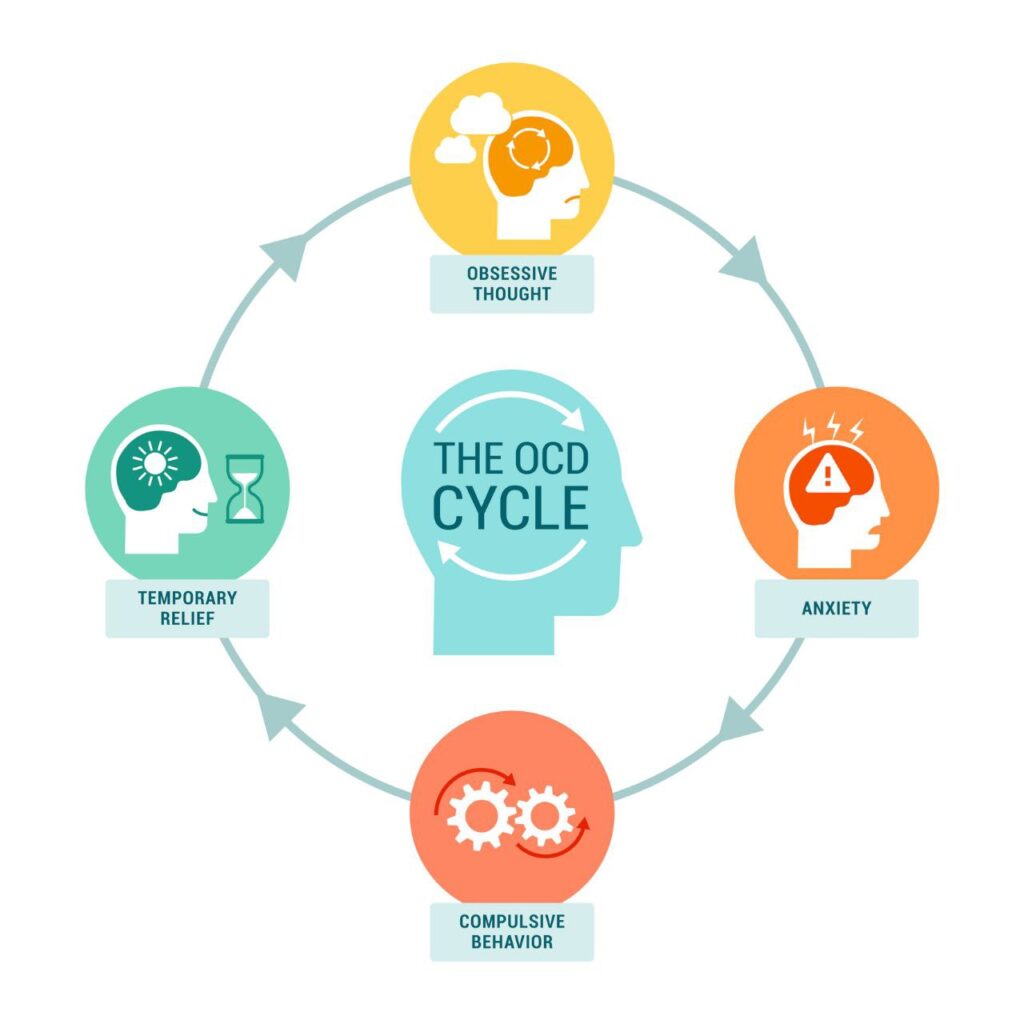Treating Obsessive-Compulsive Disorder (OCD)
Obsessive-Compulsive Disorder (OCD) is a mental health condition characterized by recurring and intrusive thoughts, compulsions to perform specific rituals or behaviors, and a significant distress or impairment in daily life. According to the National Institute of Mental Health (NIMH), approximately 1% of the adult population in the UK suffers from OCD, making it a significant public health concern.
Types of OCD Treatment
There are several treatment options available for individuals with OCD, including:
- Cognitive-Behavioral Therapy (CBT): CBT is a widely used and effective treatment for OCD. This type of therapy involves identifying and challenging negative thought patterns and behaviors and replacing them with more balanced and constructive ones. A study published in the Journal of Consulting and Clinical Psychology found that CBT was more effective than medication in reducing OCD symptoms (Himle et al., 2001).
- Exposure and Response Prevention (ERP): ERP is a specific type of CBT that involves exposing individuals with OCD to situations or objects that trigger their obsessive thoughts and compulsions, while preventing them from performing the compulsive behaviors. This approach helps individuals learn that they can tolerate the anxiety caused by their obsessive thoughts without engaging in compulsive behaviors.
- Medications: Medications such as selective serotonin reuptake inhibitors (SSRIs) are commonly used to treat OCD. These medications work by increasing the levels of serotonin in the brain, which can help reduce symptoms of anxiety and depression. A study published in the Journal of Clinical Psychopharmacology found that SSRIs were effective in reducing OCD symptoms in individuals with treatment-resistant OCD (Koran et al., 2005).
- Family-Focused Therapy: Family-focused therapy is a type of therapy that involves working with both the individual with OCD and their family members to address relationship dynamics and improve communication. This approach can help family members understand and support the individual with OCD, and can also help individuals with OCD develop more effective coping strategies.
- Self-Help Strategies: There are several self-help strategies that individuals with OCD can use to manage their symptoms, including:
– Mindfulness meditation: This involves paying attention to the present moment without judgment or distraction.
– Deep breathing exercises: These can help reduce anxiety and promote relaxation.
– Progressive muscle relaxation: This involves tensing and relaxing different muscle groups to reduce physical tension.
– Journaling: Writing down thoughts and feelings can help individuals with OCD identify patterns and triggers.
Conclusion
OCD is a treatable condition that requires a comprehensive approach. While there is no single “cure” for OCD, a combination of therapy, medication, and self-help strategies can help individuals manage their symptoms and improve their quality of life. It is essential for individuals with OCD to seek professional help from a qualified therapist or psychiatrist who has experience treating OCD.
References
https://www.nimh.nih.gov/health/topics/obsessive-compulsive-disorder-ocd
https://www.ncbi.nlm.nih.gov/books/NBK553162/
Websites:
Britmed Healthcare: https://britmedhealthcare.co.uk/
Nightingale Hospital: https://www.nightingalehospital.co.uk/
Top Doctors: https://www.topdoctors.co.uk/doctor/ahmed-el-missiry
You can also book, Contact us on WhatsApp 0800970801




